Deadly Strikes Hit 'Pressure Cooker' Rafah Ahead Of Gaza Truce Push
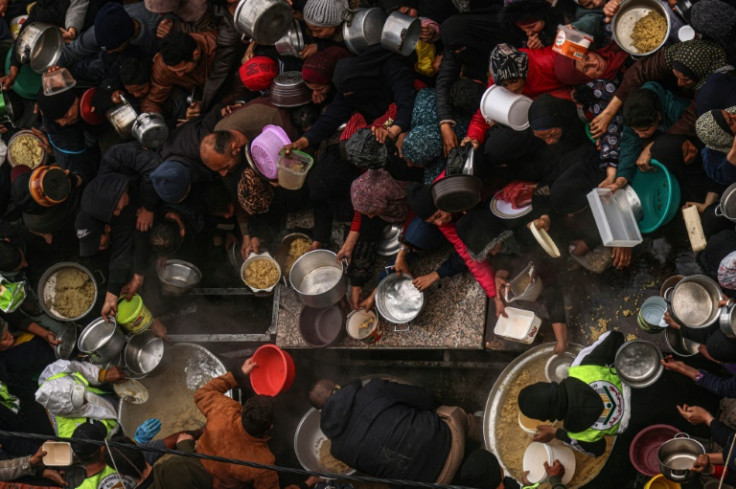
Deadly strikes were reported early Saturday in the overcrowded Gaza border town of Rafah -- dubbed a "pressure cooker of despair" by the UN -- as international mediators readied a new push to seal a tentative truce deal between Israel and Hamas.
Hundreds of thousands of displaced Palestinians have fled south to Rafah since the outbreak of the war, with the former city of 200,000 now housing more than half of Gaza's two million-plus population, a WHO representative said Friday.
The United Nations' humanitarian agency OCHA said it was deeply concerned about the escalation of hostilities in nearby Khan Yunis, which have pushed more and more people south in recent days.
"Most are living in makeshift structures, tents or out in the open," OCHA spokesman Jens Laerke said during a briefing in Geneva.
"Rafah is a pressure cooker of despair, and we fear for what comes next."
An AFP journalist in the city heard powerful explosions shortly after midnight on Saturday, with the Hamas-run health ministry later reporting 14 people killed in two strikes there.
The ministry said more than 100 people in total were killed across the territory overnight.
Abdulkarim Misbah, one of the many people seeking refuge in Rafah, said he had first left his home in the northern Jabalia refugee camp for Khan Yunis, only to be uprooted again.
"We escaped last week from death in Khan Yunis, without bringing anything with us. We didn't find a place to stay. We slept on the streets the first two nights. The women and children slept in a mosque," the 32-year-old father said.
The family later received a donated tent, setting it up right beside the Egyptian border.
"My four children are shivering from the cold. They feel sick and unwell all the time," he said.
Winter storms and torrential rain lashed Gaza on Friday, with some people wearing hazmat suits left over from the Covid pandemic as protection against the harsh weather.
The war in Gaza was sparked by Hamas's unprecedented October 7 attack on Israel, which resulted in the deaths of around 1,160 people, mostly civilians, according to an AFP tally based on official figures.
Militants also seized about 250 hostages, and Israel says 132 remain in Gaza, including at least 27 believed to have been killed.
In response, Israel launched a withering offensive that has killed at least 27,131 people in the Gaza Strip, mostly women and children, according to the health ministry in the Hamas-run territory.
The UN children's agency UNICEF said Friday that an estimated 17,000 children in Gaza had been left unaccompanied or separated from their parents due to the war.
"Each one has a heartbreaking story of loss and grief," said spokesman Jonathan Crickx.
Nearly four months of fighting have devastated the coastal strip, while an Israeli siege has resulted in dire shortages of food, water, fuel and medicines.
Image analysis released Friday by the UN's satellite centre UNITAR based on footage collected on January 6 and 7 showed that "approximately 30 percent" of Gaza's structures had been affected by the war.
The International Federation of Red Cross and Red Crescent Societies (IFRC), meanwhile, announced the deaths of three Palestinian Red Crescent workers -- two on Wednesday and one on Friday -- around Al-Amal hospital in Khan Yunis.
"Any attack on healthcare workers, ambulances, and medical facilities is unacceptable," the IFRC said in a statement.
The soaring civilian death toll in Gaza, as well as fears among Israelis over the fate of the hostages, have fuelled calls for a truce.
US Secretary of State Antony Blinken will travel to the Middle East yet again in the coming days to press a new proposal involving the release of Israeli hostages in return for a pause in the fighting, the State Department said.
Blinken will visit Qatar and Egypt -- the mediators of the proposal -- as well as Israel, the occupied West Bank and Saudi Arabia starting Sunday, it added.
The trip -- his fifth since the war broke out -- comes after Qatar's foreign ministry spokesman Majed al-Ansari said there were hopes of "good news" about a fresh pause to the fighting "in the next couple of weeks".
He said a truce proposal thrashed out in Paris earlier this week had "been approved by the Israeli side" and received a "positive" initial response from Hamas as well.
However, a source close to the group told AFP: "There is no agreement on the framework of the agreement yet -- the factions have important observations -- and the Qatari statement is rushed and not true."
A Hamas source said it had been presented with a plan involving an initial six-week pause in fighting that would see more aid delivered into Gaza and exchanges of certain Israeli hostages for Palestinian prisoners held in Israel.
The leaders of Hamas and its Gaza ally Islamic Jihad, Qatar-based Ismail Haniyeh and Ziyad al-Nakhalah, respectively, discussed the latest development and said any future ceasefire must lead to "a full withdrawal" of Israeli troops from Gaza, Haniyeh's office said.
The war has sparked a surge in attacks by Iran-backed groups in the region in support of the Palestinians.
The US military launched a wave of air strikes against Iranian forces and Tehran-backed fighters in Iraq and Syria on Friday in retaliation for a drone attack in Jordan that killed three US soldiers on Sunday.
Friday's air strikes were directed at the Islamic Revolutionary Guard Corps Quds Force and "affiliated militia groups", and hit "more than 85 targets", the US Central Command said in a statement.
Also on Friday, the Israeli army said its defence system "successfully intercepted a surface-to-surface missile that approached Israeli territory in the area of the Red Sea", with Yemen's Huthi rebels claiming they had fired missiles towards Israel.
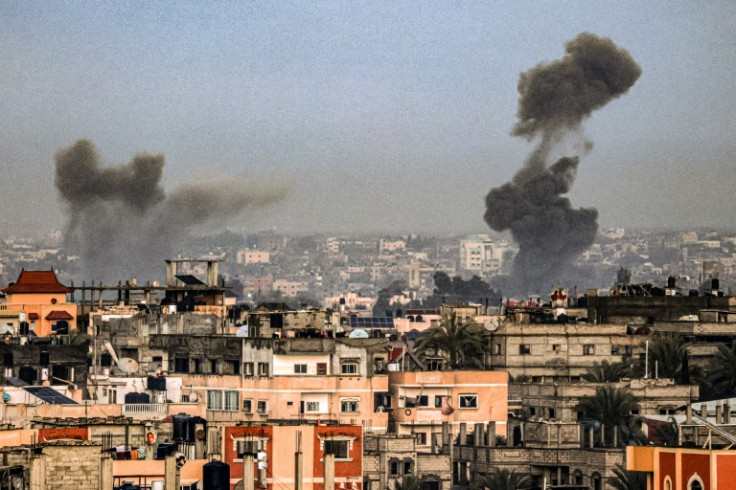
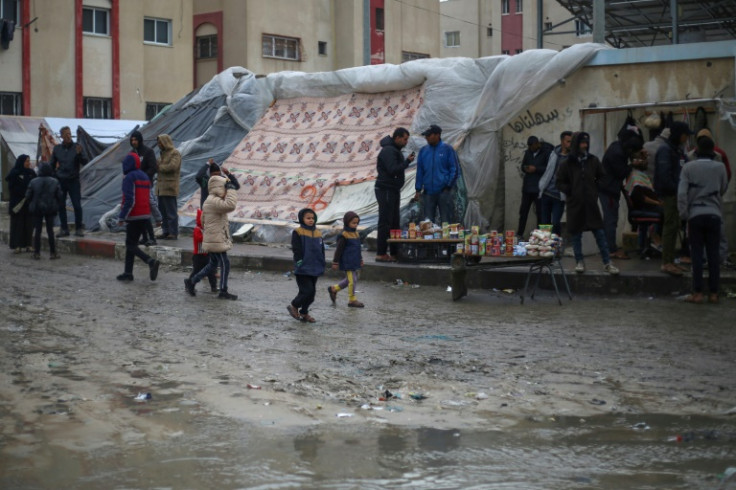
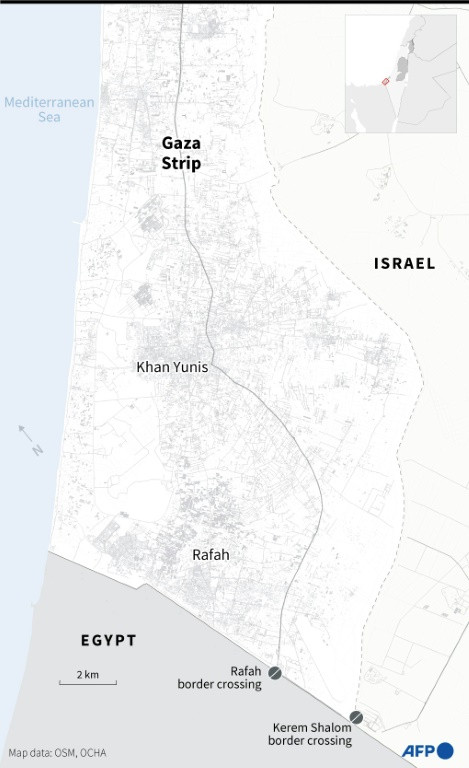
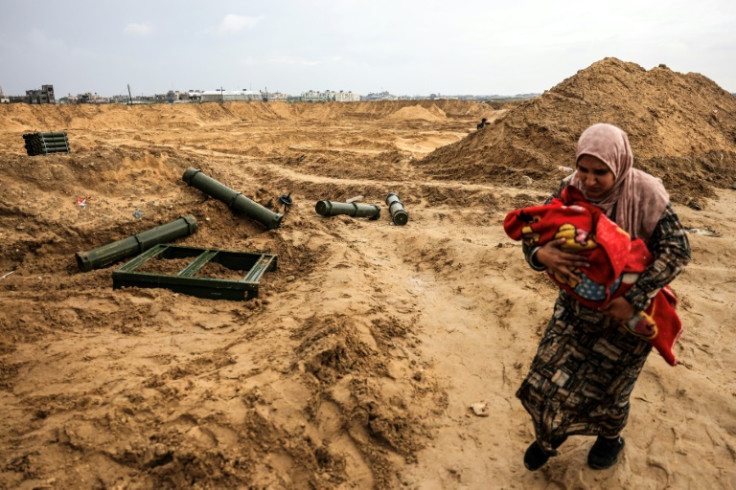
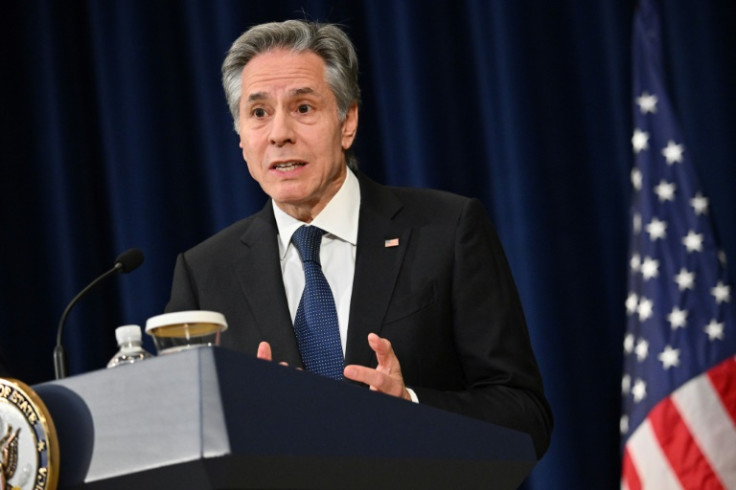
© Copyright AFP 2025. All rights reserved.





















